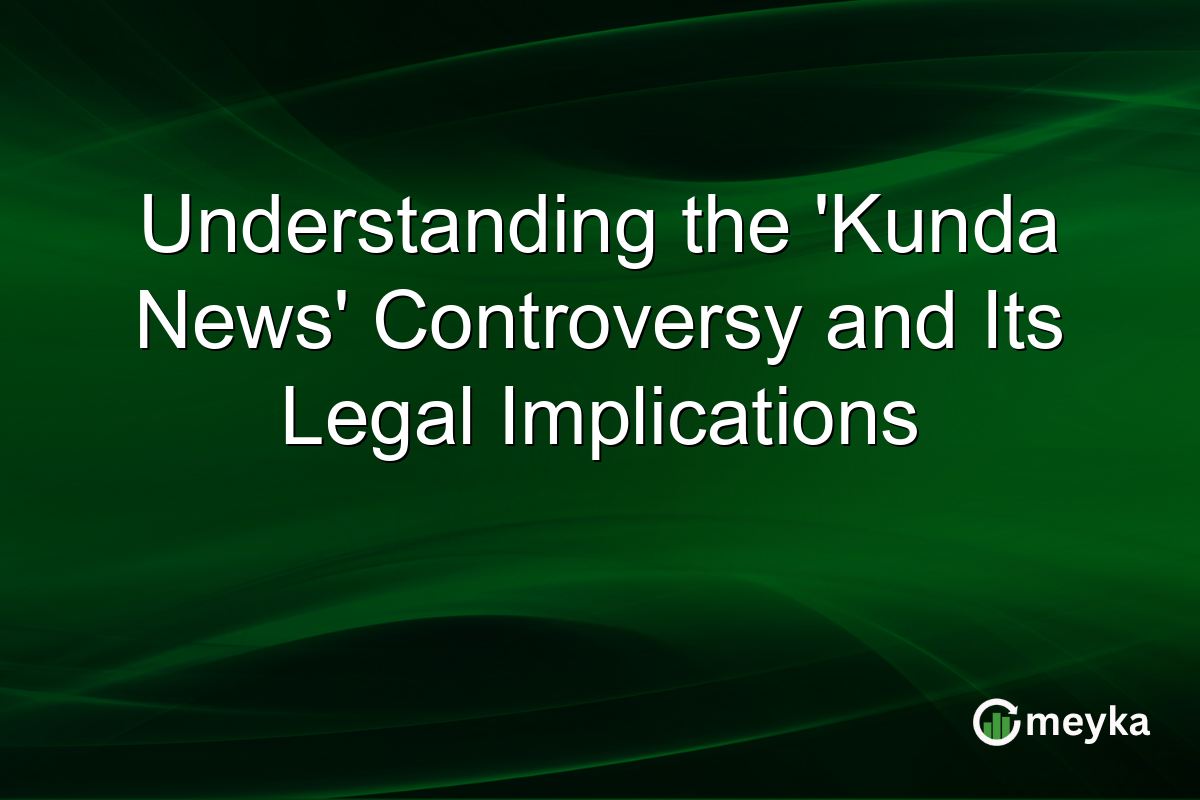Understanding the ‘Kunda News’ Controversy and Its Legal Implications
In recent weeks, “Kunda news” has dominated conversations online. The focus is not financial markets but rather public sentiment surrounding Kunda, a popular figure embroiled in controversy. This has stirred discussions about the intersection of personal conduct and public accountability within the legal system. Despite the buzz, these discussions have little to no direct impact on market movements or stock-related activities.
The Heart of the Kunda Controversy
Kunda has found himself at the center of media attention due to personal and professional conduct issues. Public discussions have examined how such controversies can influence societal attitudes toward accountability and integrity. This mirrors a larger trend where individuals are often held to higher ethical standards due to their public status.
For more detailed coverage of the controversy, consider visiting external sources like https://www.ettoday.net/news/20251022/3054633.htm for further insights. The controversy highlights a broader cultural shift where public figures’ private actions are scrutinized heavily, raising questions about legal and ethical responsibilities.
Military Allegations: Fact or Fiction?
A significant aspect of the discourse involves allegations related to Kunda’s military service. While these claims remain unverified, they have amplified discussions on military obligations and their legal ramifications. Such allegations, true or not, can influence public perception and stir debate on military service’s role in personal accountability.
Legally, unverified allegations have minimal impact unless substantiated in a court of law. This situation underscores the importance of distinguishing between public opinion and legal facts while understanding an individual’s legal standings.
Public Perception and Media Influence
The reaction to Kunda’s situation illustrates the profound influence of media on public sentiment. The spread of information, verified or not, can shape narratives swiftly. This phenomenon showcases how media can bolster or damage reputations even before any legal conclusions are drawn.
Social media platforms like Facebook are rife with discussions, seen in various posts like https://www.facebook.com/tvbsfb/posts/962136096334536/, which offer a window into shifting public attitudes. This dynamic poses challenges in navigating the boundaries between legal accountability and media-driven perceptions.
Final Thoughts
The “Kunda news” situation offers an insightful case study into the power of media and public perception in shaping legal conversations. While these events do not directly affect financial markets, they highlight the intricate dance between public figures, legality, and reputational impact. As society continues to hold influential figures to higher standards, both legally and ethically, it’s essential to navigate these scenarios with clarity. Legal structures need to adapt if they are to effectively address the complex interplay of personal actions and public scrutiny in today’s hyper-connected world.
FAQs
The Kunda controversy involves allegations related to personal and military conduct. It has stirred public debates about accountability and integrity for public figures, although the claims remain largely unverified.
Media coverage has heavily influenced public opinion by amplifying allegations and discussions, despite a lack of legal conclusions. This showcases the media’s role in shaping narratives and reputations before the legal system intervenes.
Legally, the allegations against Kunda remain speculative without court substantiation. However, the situation highlights the challenges of distinguishing between media-driven opinions and legal truths.
Disclaimer:
This is for information only, not financial advice. Always do your research.






